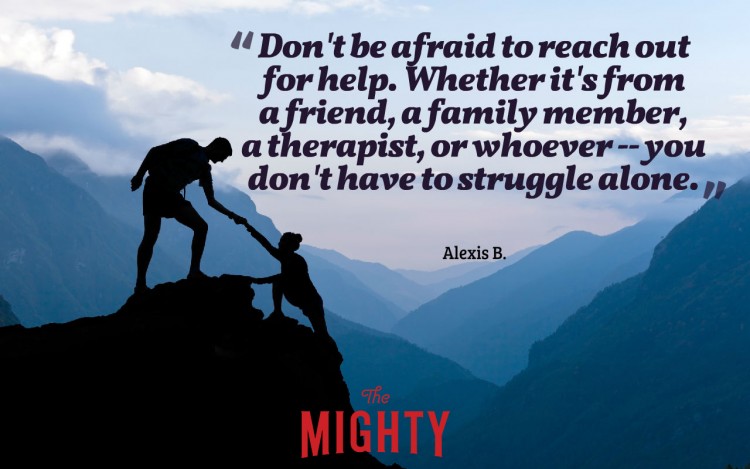Graduation can be a difficult and scary time for anyone, especially the one in five college students facing a mental health issue. According to Dr. Perry Francis, a counselor trainer at Eastern Michigan University and member of the American Counseling Association, leaving the “protective bubble” of college education can lead to changes in almost every aspect of a young person’s life. These changes can cause stress and anxiety to rise, making mental health issues harder to deal with.
To help you cope with these changes, we teamed up with Active Minds and Francis to find out what mental health advice recent graduate needs to know:
1. Don’t be afraid to reach out for help.
Support systems are one of the most important tools for dealing with mental health issues. Graduating from college can change support systems. You may need to find a new therapist or leave a club that helped you cope. Francis suggests recent grads start looking for new support systems before graduation to avoid a difficult transition period. Try searching for therapists near your new home and connecting with family members. Using the internet can make both of those tasks easier because you can use social media to stay connected to your friends and family.

2. Find new ways to socialize outside of a college campus.
Living on campus or even spending a lot of time on one is a great way to make friends in college. People with similar interests and schedules are never more than a walk away, but getting used to that can make finding friends after college harder. Many graduating students find themselves isolated and focused on work after leaving college, and that isolation can make mental illness much more difficult to deal with. Francis recommends finding activity groups for people your age like exercise classes, intramural sport clubs or creative workshops. These can help you find friends who have similar interests as well as keep you occupied when you aren’t working.
3. You don’t have to have it all figured out right this second.
How many times have you listened to a friend talk about how prepared they are for graduation? They mention the job they have lined up, the apartment they plan on renting, making you feel like you fell behind. Hearing all this can be scary, but Francis says it’s all a matter of perspective. Most people tend to only talk publicly about their successes in education, so it makes sense that most people won’t talk about how unprepared they are. People also tend to not mention how much outside help they received from professors, family members or career services. Francis recommends starting to prepare as early as you can, but it’s never too late to start. Career services can be a huge help for preparing yourself for the career and financial aspects of post-graduate life.

4. Know what your skills are and how to use them.
According to Francis, one of the biggest problems facing graduating college students is the lack of structure and guidance. College students often find themselves having “tunnel vision,” where they focus all their attention on their major and careers directly related to their major. For example, a biology student might put all of her effort into becoming doctor, and if that doesn’t work out she may feel anxious about finding a different career. But this tunnel vision is misleading and can make your anxieties worse. Getting a college education in any major is going to give you a skill set that can help you get a job. Science majors can apply their research skills to a publishing company, language majors can analyze business documents for an international company and English majors can apply their writing skills to almost any field in the form of copywriting and advertising. This “tunnel vision” can be even more intense when you live with a mental illness, according to Francis, so knowing how to use your skills can be important for keeping your anxieties in check.
5. Stay in charge of your own life.
Changing from a college life of structure to a post-graduate life of freedom can be the hardest part of graduation. With all of the clubs, facilities and mentors gone, you may feel like you’ve lost control of your direction. Francis says these feelings can lead to more intense anxiety if ignored, so taking back that control is key. Make sure to seek out your support systems and opportunities on your own terms, and always go with what makes you happy. This is especially important if therapy is a part of your support system. Some therapists may try and alter some of your goals or solve your problems for you, but according to Francis this isn’t healthy for a recent graduate. A good therapist for helping you deal with transitions should be supportive and help guide you towards your goals, but not try and do your work for you. These therapists will help you deal with your immediate mental health issues, as well as teach you how to help yourself in the future. Keeping this control over your life gives you a solid foundation to move forward with your mental health and keep you on a path to recovery.

What’s something you wish you knew when you graduated college? Tell us in the comments below.

